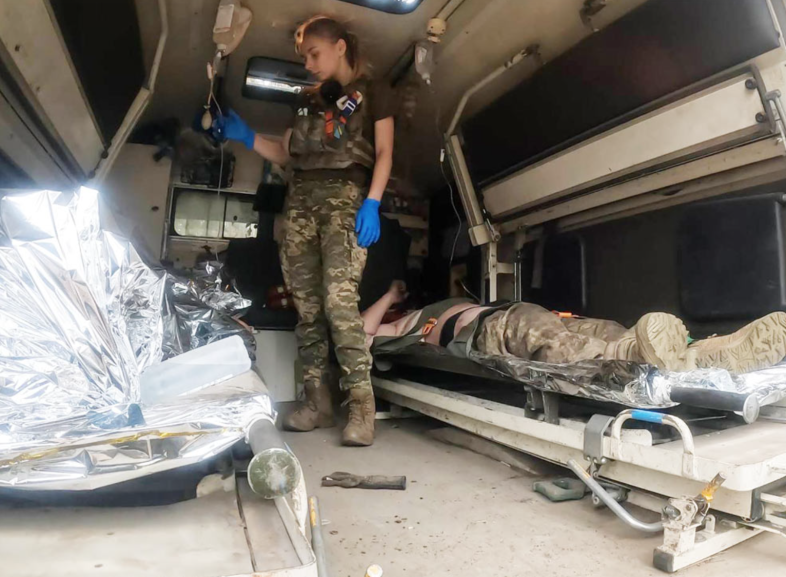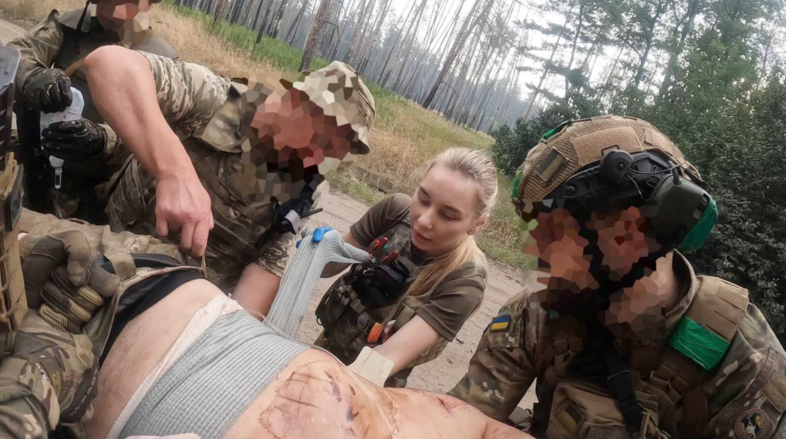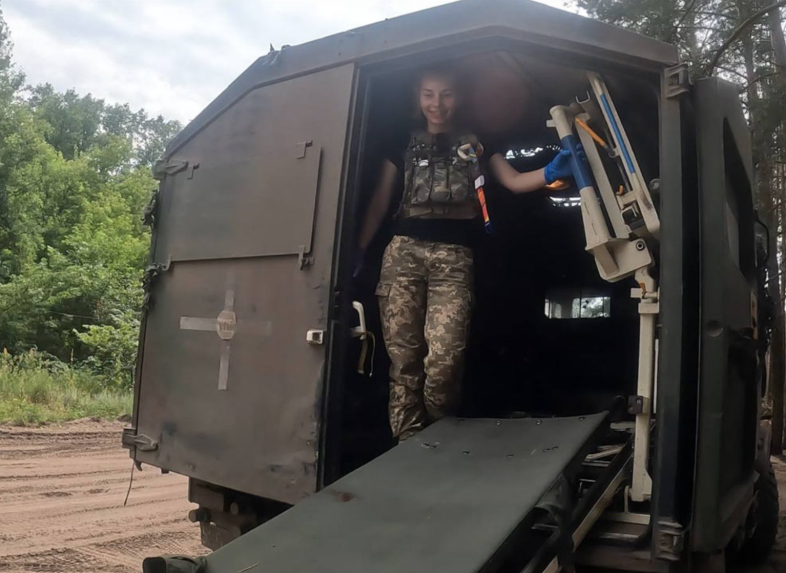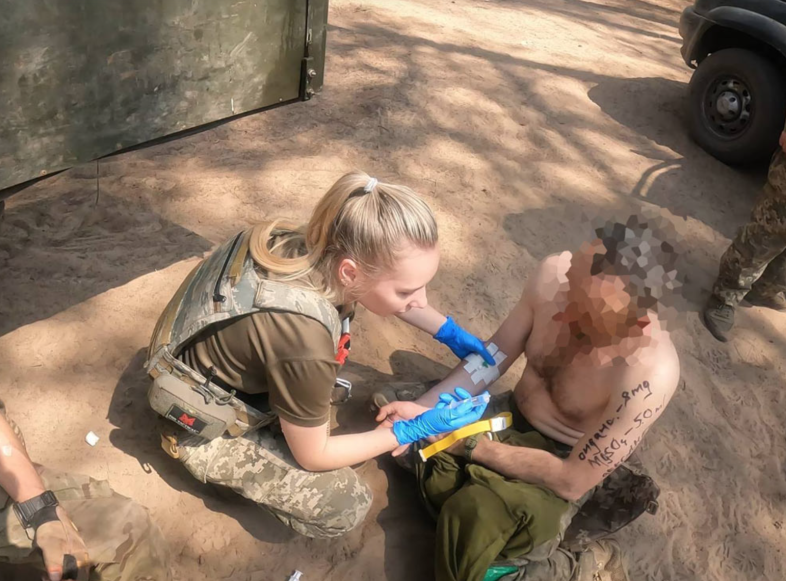Evacuating the wounded soldiers is not an easy job. Maria has long forgotten what a full night’s sleep used to feel like. She now dedicates all of her time to Ukrainian defenders, saving their lives on the front line.
Maria Andreyishyn is originally from Zhytomyr. She has been in the war zone since 2021. At the age of 22, she has experience working in some of the most dangerous trouble spots in the Russian-Ukrainian war. Maria is a paramedic in the 95th Brigade Evacuation Unit.
“I decided to dedicate my life to medicine a long time ago”, says the young paramedic. “Even when I was at school, I knew where I would enrol once I finished high school. When Russia invaded in 2014, I was still a teenager. Yet, even then, I told my parents that if the war were to last for a longer time, I would join the military to help on the front line. I completed my studies and joined the Ukrainian Armed Forces. At that time, we were stationed at what was still described as the area of the Anti-Terrorist Operation. Then, I encountered the full-scale invasion in the East”, recalls Maria.

Source: all the photos in this article were provided by Maria Andriyishyn
Since 24 February, even a few hours of sleep seemed like an unattainable luxury – there were large numbers of wounded, and all our crews immediately got to work. Paramedics had calluses from wearing bulletproof vests and helmets. Armed Forces soldiers were delivered with all the possible wounds they suffered in heavy battles: injuries caused by mine explosives, shrapnel wounds, and traumatic amputations.
“I believe that in life, everyone has a specially designated place for them. Yes, it’s not easy for a woman to be a combat medic. If there is an enemy shelling and a member of the military is injured, you have to carry them out to safety, literally dragging on your back them for several kilometres. That’s why men mostly hold such positions. It’s a bit easier to serve as a battalion medic. But there are difficulties here, too. Each stage of providing assistance to the military is complicated in its own way. Our evacuation group consists of a driver, a doctor, and a paramedic,” explains Maria.
“The hardest part,” she admits, “is when a soldier dies from wounds on the way to be treated”.

“There were times when we were on duty in the middle of the forest. Unfortunately, there were cases when they transported the already dead,” Maria shares her memories. “In general, the most important assistance is provided in the car on the way to the medical brigade. The wounded are bandaged on the go; we connect them to medical equipment and administer the necessary drugs. The road is often rocky and impassable; it lies through the forest or the fields. More than once, we carried the wounded in the rain”.
On one occasion, Maria’s brigade transported a soldier of Russian occupation forces taken prisoner by the Ukrainian military. “I admit, at that time, I had a particular wish to provide him medical assistance, but then I caught myself thinking that if I did my job now, maybe our guys would be helped in enemy captivity. These people came to kill, and still, we treated him,” the girl recalls.

“It’s war. Nobody knows what to expect. At times, I’ve seen wounds that were hard to believe they were possible. We transport our guys, and they don’t believe they are wounded; they are asking to go back to their comrades and continue to fight. Most are determined to recover and continue military service”, says the paramedic. “The truth is, there are no people who are not afraid once they are in a war zone. Once, during the storm, we were assigned an evacuation point. The dusk had already settled. We were driving to the assigned point when Russians started to shell the toad we took. There was not much we could do – we carried out the wounded, we provided assistance, and we had to head back. However, the shelling continued. The way back was dangerous now, and there were seven wounded soldiers in the car. It was genuinely scary. The driver himself wasn’t sure how to drive us back. I was afraid that none of us would return alive”.
After the war ends, Maria plans to work as a medic.

“I lost count of lives we’ve saved; it has exceeded hundreds a long time ago. I don’t keep track of it, and I can’t give you a specific number. In civilian life, I feel uncomfortable; my thoughts are here, on the front line. I want to continue evacuating people. My service in the Armed Forces is my life and work now”, concludes Maria.

